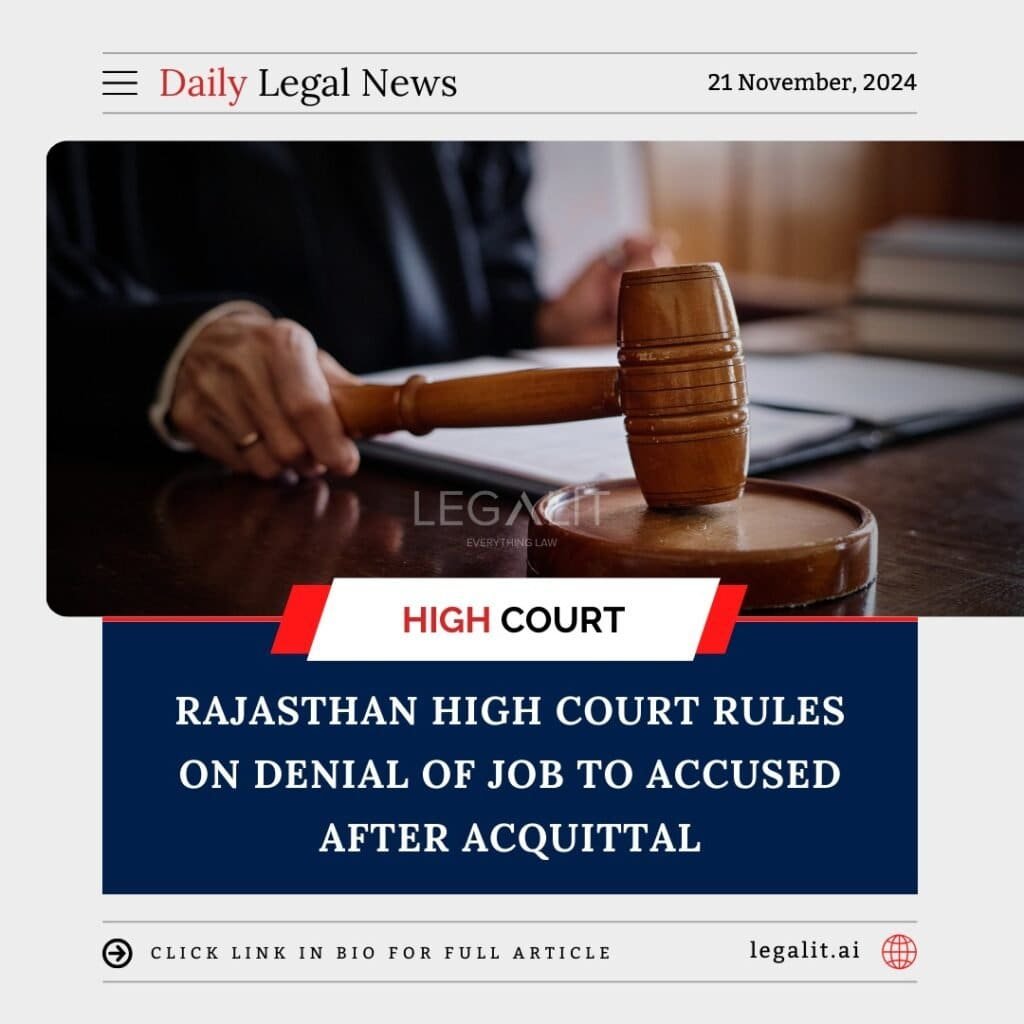
The Rajasthan High Court recently delivered a significant judgment on the denial of employment to an individual who had been acquitted of charges in a criminal case. The court held that an accused person who has been acquitted should not be discriminated against or denied job opportunities solely based on their prior involvement in a criminal case, especially when the acquittal is due to lack of evidence or merit.
Background:
The case involved an individual who had been acquitted by the trial court of criminal charges. Despite this, the person faced difficulties in securing a job, as the employer, citing the past criminal charges, denied the individual employment. The applicant challenged the decision, arguing that an acquittal should clear any stigma associated with the case and that the denial of employment was unjust.
Court’s Rationale:
The Rajasthan High Court emphasized that an acquittal signifies that the individual was not proven guilty beyond a reasonable doubt, and as such, no legal or moral grounds exist for discriminating against them in employment matters. The court also referred to principles of fairness and justice, highlighting that an acquitted individual must not be treated as a criminal. It stressed that denying someone a job solely because they were previously accused but later acquitted could violate their fundamental rights to equality and livelihood under the Constitution.
Existing Measures:
The court noted that while employers have the right to consider an applicant’s background, they must also respect the legal principle that an acquittal should be treated as a verdict of innocence. This ruling may encourage a shift in employment practices, ensuring that individuals who have been acquitted are not unfairly penalized or excluded from job opportunities.
Conclusion:
The Rajasthan High Court’s decision reinforces the notion of fairness in the legal and employment processes. It ensures that individuals who are acquitted of criminal charges are not unjustly denied opportunities based on their past legal issues. This judgment serves as a reminder that the acquittal of an accused person should restore their rights and allow them to move forward without being hindered by their prior involvement in a case.